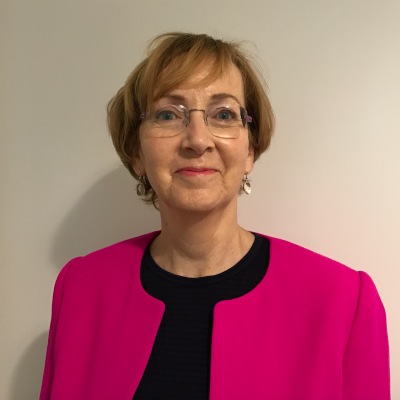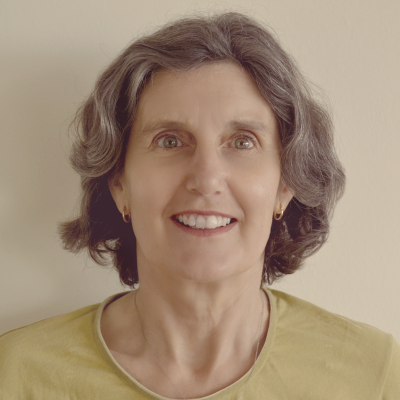Assoc Prof Roseanna Bourke, Prof John O’Neill and Dr Judith Loveridge
Massey University / Victoria University of Wellington
Imagine a child who tells you he was brave because he faced his fear head-on and travelled on the local Halloween train where ghouls and scary people jump out! These scary people are, of course, local teachers and actors creating a sense of fun and excitement every Halloween in the local city gardens. It is an unnerving and often much anticipated event for children. For each child, the experience is different. For each, it is also a learning experience – as are many other informal everyday experiences our children engage in.
What does this have to do with classrooms?
Our research on children’s informal and everyday learning found an unexpected connection between this kind of learning and what children need to learn to negotiate in the classroom. For example, one participant in our study used the example above to determine that he was ‘brave’. When he was asked what he wanted to tell the teacher about his everyday learning, he chose this event, months after it happening, and after he recorded the experience through photos and video documentary. The reason why he chose this experience is particularly compelling. This child learned he was brave by going on the train prepared to be frightened but ready to be brave. He wanted to use this bravery ‘for harder work at school’. For this child, it was important that his teacher be told he was brave so she could give him harder work and know that he was brave enough to have a go at it. With one simple prompt, this child began making a productive link between his everyday and his classroom learning.
Our research
Examples like these suggest that as educators we need to see informal and everyday learning, and its relationship to what occurs at school, in a different way. We explored children’s conceptions of their informal and everyday learning with both the children and their teachers, over a three-year period. On analyzing the phenomenon of children’s everyday learning, we found that their conceptions varied from less sophisticated (e.g. ‘I am doing this task because someone has asked me to’), to more sophisticated (e.g. ‘I have chosen for us to do this activity because I know exactly how practice will improve our collective performance’).
As part of this work, we developed what we have called a ‘CRISPA’ approach to learning. In the CRISPA framework, we identified how children’s informal learning in everyday settings incorporates a range of dimensions: Culture, Relationships, Identity, Strategy, Purpose and Affect/emotion. Often these dimensions revealed aspects of children’s learning that were neither visible nor celebrated in their school context. For example, children living in blended families may have to learn to negotiate the Identity, Relational and Affective complexities of being the eldest sibling in one household grouping and the youngest in another as they move between the two; or they may have to learn how to deal concurrently with a natural parent, a step parent, and a parent’s current partner, each of whom identifies with a distinct ethnic heritage and popular Cultural norms.
And the link with assessment?
The speed at which New Zealand’s National Standards regime was introduced under urgency in December 2008 by a National-led Government was matched only by the speed at which they were formally withdrawn by a Labour-led Government in 2018. This liberating moment in time for New Zealand teachers and students presents an opportunity to refocus assessment more meaningfully on children as they actually live and learn in the real world. Most children have considerable learning strengths that they develop and deploy in the course of their complex everyday lives. Why wouldn’t teachers want to draw on these everyday strengths if doing so can also help children to see themselves – and act – as successful classroom learners? If we have learned anything practical as educators from these children, it is that we can indeed use the knowledge that underpins the CRISPA framework to start to see children’s learning in a different way, and develop our assessment strategies and methods accordingly.
We have recently published an article in the Australian Educational Researcher where we explored how teachers can use information about children’s learning outside school in the everyday relations of the classroom, including assessment. In our AER article we argue that classroom assessment practices are greatly influenced by national and local policies on assessment. Typically, these policies include accountability requirements for schools to evidence and report their students’ learning in the form of specific learning outcomes, calibrated against national benchmark standards of achievement and progression. An implication for teachers is that their understanding of children’s learning is influenced by an official curriculum that is more likely to be weighted towards particular policy priorities, and desired learning outcomes. Yet teachers, individually and collectively, may have highly variable understandings about how these officially approved policies for the assessment of learning outcomes are intended to work. This means the knowledge, skills and understanding that children develop outside school are less likely to be included in classroom assessment measures or judgments about desirable progress and achievement. The end result is that many children are pathologised rather than celebrated as learners.
Where to next?
Through our research, we have identified a framework of possibilities for teachers to assess expanded conceptions of children’s learning within the classroom, now that the pressures of assessment against National Standards are no longer present. We argue that teachers engaging with knowledge of their students’ informal learning acts as a catalyst to rethink and re-conceptualise learning more broadly. First and foremost, teachers should consider: ‘If this is how this child learns confidently and successfully outside school, how does my teaching need to change so that he or she can more easily use these learning strengths in our classroom?
After only one primary school generation under National Standards, teachers have become more acutely aware of the impacts of outcomes-based assessment on their students, and on the classroom ecologies that maintain student-teacher relations. Assessment systems have come to dominate the primary school learning experience and we would argue forcefully that any potential benefits have been greatly outweighed by the harms to children’s self-efficacy, learning and pedagogical relations. Now’s the time for us as educators to be brave and to take the chance to play with ideas, and assess what really matters. Let’s give children the opportunity to choose to be brave in our classrooms.
 Roseanna Bourke is an Associate Professor of Learning and Assessment and registered psychologist at the Institute of Education, Massey University, New Zealand. Roseanna’s research investigates children’s conceptions of learning and self-assessment, self-assessment in the tertiary sector, how people learn in formal and informal education settings, sustainable assessment, student voice and applied professional ethics.
Roseanna Bourke is an Associate Professor of Learning and Assessment and registered psychologist at the Institute of Education, Massey University, New Zealand. Roseanna’s research investigates children’s conceptions of learning and self-assessment, self-assessment in the tertiary sector, how people learn in formal and informal education settings, sustainable assessment, student voice and applied professional ethics.

John O’Neill is Professor of Teacher Education and Head of the Institute of Education at Massey University, New Zealand. His research interests include the relationships between education policy and teachers’ work and learning, applied professional ethics, the privatisation of public education, and informal teaching and learning in everyday settings.
 Judith Loveridge is a Senior Lecturer in the School of Education, Victoria University of Wellington, New Zealand. Her research focuses on the intersection between social and cultural processes and individuals’ learning and development, examining both implicit and explicit cultural practices, educational discourses and pedagogical philosophies, and subjectivities.
Judith Loveridge is a Senior Lecturer in the School of Education, Victoria University of Wellington, New Zealand. Her research focuses on the intersection between social and cultural processes and individuals’ learning and development, examining both implicit and explicit cultural practices, educational discourses and pedagogical philosophies, and subjectivities.


I love this. Children are powerful learners wherever they are and I love the idea of tapping into their outside of school learning strategies for use within the classroom. How wonderful that this boy, in the example, was able to articulate his thinking so clearly and even that he had the opportunity for his voice to be heard. I am looking forward to reading your article next…
LikeLike
[…] Bourke, R., O’Neill, J., & Loveridge, J. (2018, March 26). What happens to assessment when teachers learn about children’s informal learning? NZARE. https://nzareblog.wordpress.com/2018/03/26/assessment-informal-learning/ […]
LikeLike
[…] Bourke, R., O’Neill, J., & Loveridge, J. (2018, March 25). What happens to assessment when teachers learn about children’s informal learning? NZARE. Ipu Kererū: NZARE. https://nzareblog.wordpress.com/2018/03/26/assessment-informal-learning/ […]
LikeLike